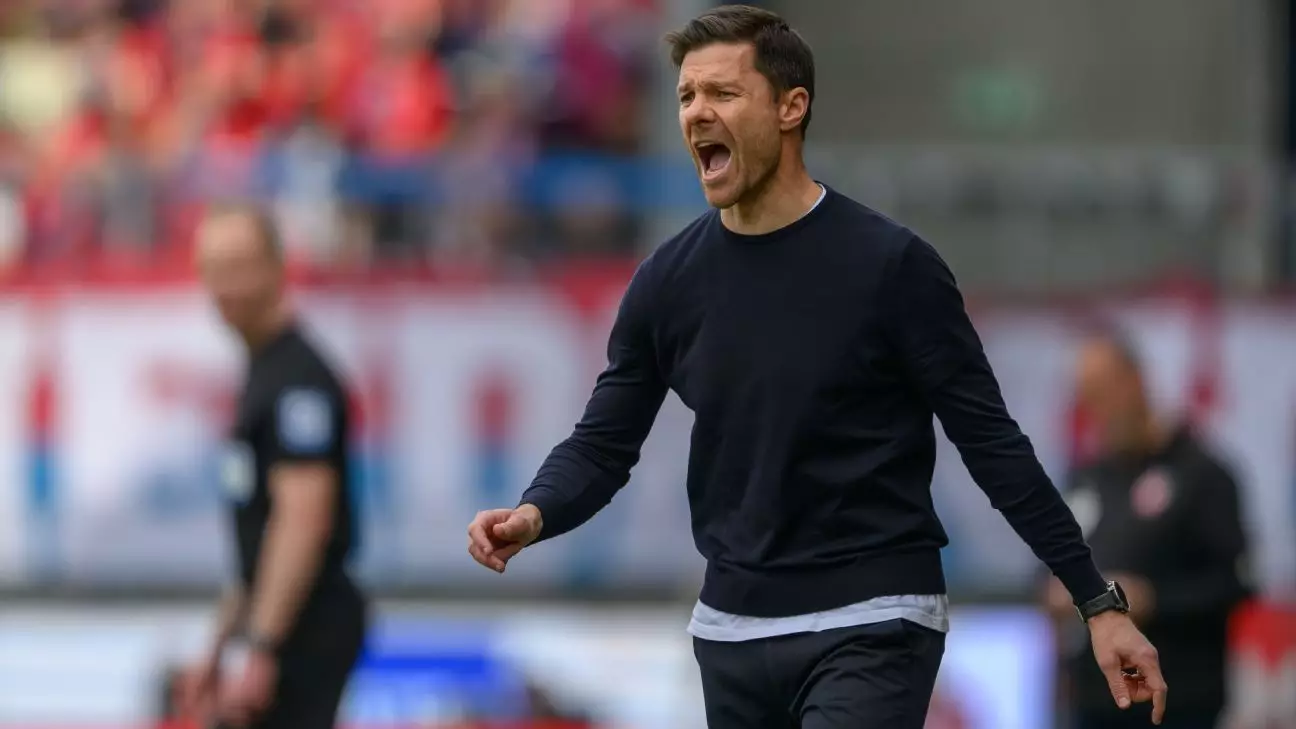In the ever-dynamic world of football, few stories seem as intriguing as that of Xabi Alonso, head coach of Bayer Leverkusen. Under his guidance since October 2022, the club has transformed from perennial underachievers to genuine contenders, culminating in an unprecedented unbeaten run in the Bundesliga and significant silverware, including the DFB-Pokal and the DFL-Supercup. This meteoric rise is not merely a testament to Alonso’s tactical acumen but also a nod to the deeper ambitions he holds for his future in football management. As discussions swirl around the potential exit of seasoned managers like Carlo Ancelotti at Real Madrid, speculation around Alonso’s next move continues to mount.
Understanding the Gentleman’s Agreement
Bayer Leverkusen’s CEO, Fernando Carro, recently shed light on what he referred to as a “gentleman’s agreement” with Alonso, insinuating that should a coaching opportunity arise at one of the clubs where Alonso once donned the jersey—most notably Real Madrid or Liverpool—there may be an avenue for dialogue. This mutual understanding showcases an essential truth of modern football: ambitious coaches are often courted by clubs with storied histories. The CEO’s remarks, while pragmatic, also hint at the fragile nature of loyalty in high-stakes environments where success breeds envy and aspiration.
Alonso’s connections with elite clubs amplify the complexity of his position. Having played for the likes of Liverpool and Real Madrid, and knowing their historical expectations, the pressure to transition to management at such prestigious institutions can be overwhelming. Carro’s confidence in Alonso also reflects an awareness that the coaching carousel spins rapidly; clubs need to always prepare for potential changes, and while they want Alonso to stay, they recognize the realities of his career ambitions.
The Challenges Ahead
Despite the impressive accolades and a thriving environment at Bayer Leverkusen, challenges loom. The club’s current standing, trailing Bayern Munich by eight points with only four matches left, indicates a need for sustained excellence. Moreover, the disappointment of being eliminated from the Champions League and the added scrutiny from fans and pundits only intensifies the pressure. Carro’s reassurance that an excellent relationship exists between Alonso and the club may not completely quell speculations, especially if the team fails to secure a top-notch finish and European football for the following season.
Alonso’s trajectory over the next few weeks will be pivotal. His commitment to continuing with Leverkusen remains uncertain despite past assurances; it’s a delicate balance of ambition versus the opportunity to transform another club. The footballing world is rife with narratives about loyalty being tested with lucrative propositions from top-tier clubs.
The Timing of Decisions
Carro emphasized that decisions regarding Alonso’s future must be made promptly—within weeks rather than months. The urgency highlights a truth that many fans overlook: football management is rarely about lingering hopes but rather about strategic planning for the future. While there’s an inclination to respect the “gentleman’s agreement,” businesses must also recognize the worth of timing in management. A well-timed decision can benefit all parties involved, allowing Leverkusen to continue their upward trajectory without being caught unprepared.
Statements made by Carro about wanting Real Madrid to succeed to ease discussions present an interesting perspective. It emphasizes how intertwined the fates of clubs can be, hinging on managerial stability and the performance of rival teams. In the cutthroat arena of European football, personal desires and club ambitions often collide spectacularly.
Trust and Future Endeavors
Ultimately, the relationship between Carro and Alonso serves as a microcosm of modern football’s challenges. With both parties expressing respect and a desire to continue collaboration, the forthcoming weeks are setting the stage for pivotal choices. The interplay of loyalty, ambition, and opportunity encapsulates not just Alonso’s future, but the ever-evolving landscape of football management. As clubs and coaches navigate these waters, the subtleties of trust and professional relationship will dictate not just individual destinies, but the futures of entire clubs.

